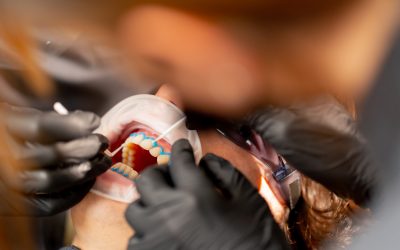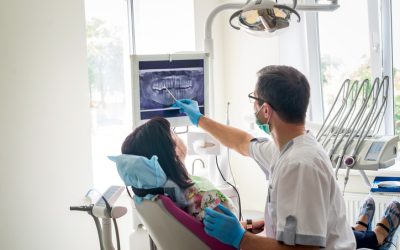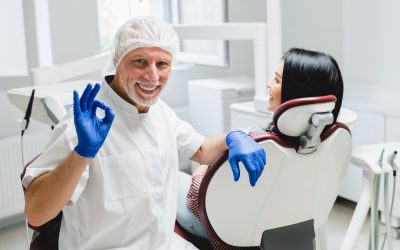July 19, 2024
Dr. Andres de Cardenas
All-on-4 dental implants, cosmetic bonding, Cosmetic Dental Care Services, cosmetic dentist Miami, Cosmetic Dentist Whitening, Cosmetic Dentistry, Daily Health Tips, dental care, Dental Care Tips, Dental Cleaning Appointment, Dental Implant Procedure, dental solutions, Dentist Appointment, family dental Care dentist, Family Dentist, FL, healthy teeth, Natural teeth whitening, Oral Cancer, Oral Care, professional denstists, Smile Makeover, Teeth Alignment, Teeth discoloration, Teeth Whitening, teeth whitening sensitive teeth, The Miami Cosmetic Dentist
Family Dental Care Miami | Miami Cosmetic Dentist > Blog > Cosmetic Dentistry > 3 Common Myths About Tooth Whitening — Debunked!
3 Common Myths About Tooth Whitening — Debunked!
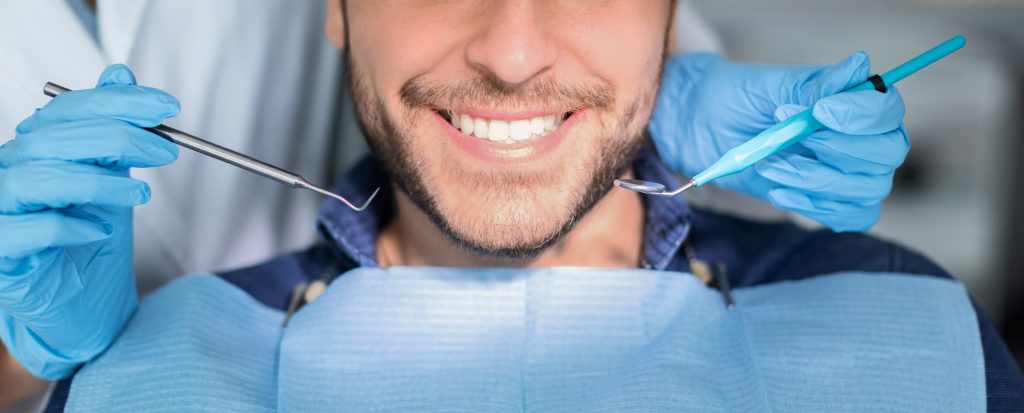
Tooth whitening is a popular cosmetic treatment that can boost your smile and self-confidence. However, there are various myths surrounding this dental treatment. Many of these misconceptions deter people from getting their teeth professionally whitened.
Tooth whitening is a professional dental procedure that removes stains and discoloration, resulting in a notably whiter enamel. It often involves using a whitening gel applied by a dentist or through a custom-made tray, typically resulting in much more effective results than over-the-counter options.
However, the process has given rise to numerous misconceptions, sparked tooth sensitivity concerns, and left many questioning the longevity of the results or even its impact on veneers. Some folks have even linked tooth whitening to eating acidic fruits.
So, what are these popular myths?
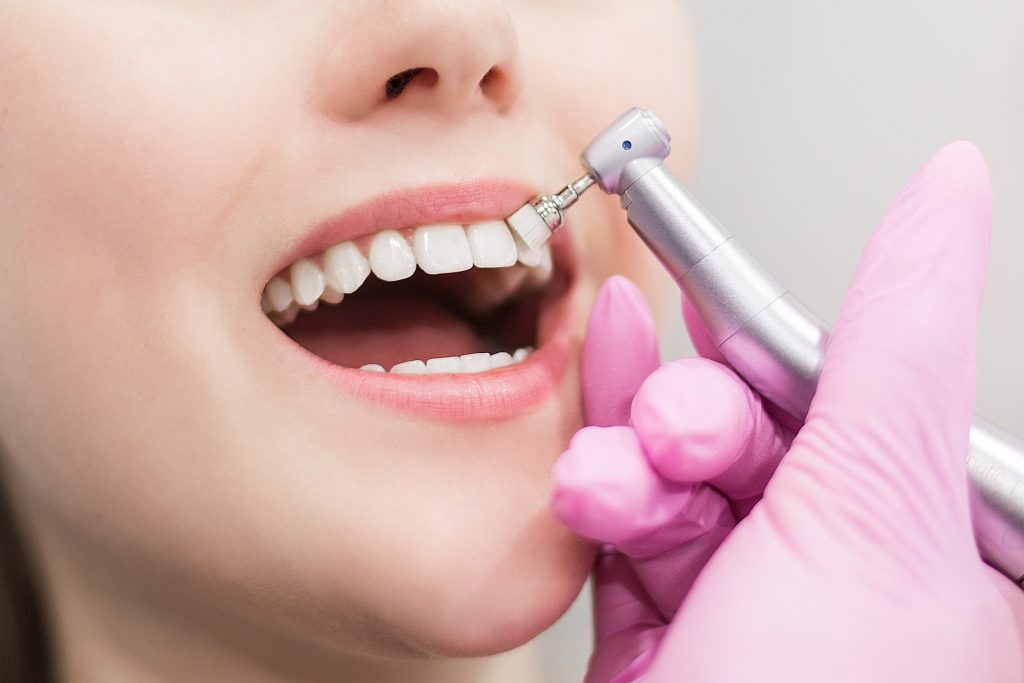 Myth 1: All Methods To Whiten Your Teeth Are Safe
Myth 1: All Methods To Whiten Your Teeth Are Safe
Despite its popularity, one of the common myths about tooth whitening is that any method you choose is always safe. While tooth whitening is a widely embraced cosmetic procedure for a whiter smile, it’s vital to discern between safe and potentially harmful practices.
Professional whitening treatments conducted by a dentist tend to offer the most safety. Dentists supervise the entire process, using clinically tested products to ensure the least amount of risk.
Conversely, over-the-counter whitening gels or trays can present issues. These include tooth sensitivity and uneven whitening due to inconsistent application. Furthermore, watch out for do-it-yourself treatments that involve highly acidic substances. These can erode your enamel, leading to further discoloration and increased tooth sensitivity.
Dangerous Ways To Whiten Teeth
These popular whitening techniques can often pose unforeseen risks to oral health. The desire for white teeth has led many to try various teeth whitening treatments. However, not all whitening procedures are created equal.
- At-home whitening kits and alternative remedies like oil pulling have become common, generating teeth-whitening myths about their efficacy and safety.
- At-home whitening kits, while convenient, often contain high levels of hydrogen peroxide, leading to dental health issues.
- Acidic fruits used as natural teeth whiteners can cause your teeth to weaken by eroding the outer layer of your teeth, accelerating dentin exposure.
Oil pulling, an ancient technique, is suggested as a way to whiten teeth. However, relying solely on this can miss out on essential oral hygiene activities, like cleanings, recognized by the American Dental Association. Professional teeth whitening remains the safest and most effective method – always talk to your dentist about your treatment options and ditch the whitening myths.
Myth 2: Whitening Treatments Cause Sensitive Teeth
One of the common myths about tooth whitening is that all tooth whitening procedures inevitably lead to sensitive teeth. The truth is sensitivity isn’t necessarily a guaranteed outcome; it significantly depends on the technique used and an individual’s specific circumstances.
It’s certainly true that tooth sensitivity post-whitening is a valid concern for many. However, realizing that not every treatment method begets this issue is crucial. In fact, professional whitening carried out by a dentist is closely monitored and customized to your dental condition, considerably reducing sensitivity risks.
While some over-the-counter products like whitening gels or trays might trigger temporary sensitivity if used incorrectly, this isn’t always the case. Adhering to the product guidelines strictly and considering the strength of the whitening gel before using such treatments can help you evade this potential side effect. Individual factors such as enamel thickness and existing dental issues could also affect sensitivity after a whitening session.
The Reality Of Sensitive Teeth
Sensitivity can arise from various factors, and whitening might exacerbate it, but it’s not the sole cause. The misconception that teeth whitening is the main cause of sensitive teeth is one of the common myths about teeth whitening. While some procedures might temporarily increase sensitivity, they’re not the sole culprit.
Sensitivity primarily stems from thin or damaged enamel, exposing dentin—the layer beneath the enamel containing microscopic tubules. These tubules allow hot, cold, or acidic substances to reach nerve endings, causing sensitivity.
Teeth whitening treatments might temporarily heighten this sensitivity, particularly at-home whitening kits with high hydrogen peroxide contents. However, professional teeth whitening treatments conducted by a cosmetic dentist are tailored to your oral health, reducing sensitivity risks.
 Myth 3: Tooth Whitening Can Remove All Stains And Discoloration
Myth 3: Tooth Whitening Can Remove All Stains And Discoloration
Perhaps one of the most prevalent common myths about tooth whitening is that these treatments have the power to eliminate all types of stains and discolorations, regardless of their root cause. The truth, however, differs significantly.
Contrary to popular belief, whitening treatments primarily work on surface stains caused by consuming stain-inducing foods or drinks (think coffee or wine) or tobacco use. However, standard whitening methods may meet their match for deeper, intrinsic stains or discolorations.
Certain factors, such as fluorosis, tetracycline staining, or dental traumas, can result in intrinsic discoloration — a type of stain that’s notably challenging to remove with whitening treatments. In stubborn deep-seated discolorations, alternative cosmetic strategies, like veneers or crowns, could be a more suitable option.
What Tooth Whitening Can And Can’t Do
Teeth whitening doesn’t make your teeth unnaturally white. Instead, the process removes stains and discoloration to restore your natural tooth color. A well-conducted whitening treatment will produce a natural-looking result—your teeth will be whiter but not look artificial.
The degree of whitening can be controlled, and a good dentist will evaluate your teeth and discuss your expectations before deciding on the treatment intensity.
While highly effective, teeth whitening treatments have limitations. Teeth whitening is a popular dental procedure designed to lighten natural teeth. Professional teeth whitening treatments and at-home whitening kits utilize a whitening system to break down stains on the surface of your teeth, resulting in a noticeably whiter smile.
 Taking Action: Schedule An Appointment With A Dental Professional
Taking Action: Schedule An Appointment With A Dental Professional
Now that we have debunked 3 common myths about tooth whitening, you might feel like it’s time to take the next step. Seeking professional advice is always the best answer. Below are some steps to help you schedule an appointment with a dental professional:
Step 1: Find A Reputable Dental Professional
Start your tooth whitening journey by finding a reputable dentist in your area. You can do this by:
- Asking for recommendations from friends, family, or coworkers.
- Checking online reviews and ratings of dental clinics near you.
- Contact your dental insurance provider for a list of recommended dental clinics.
Step 2: Prepare For Your Appointment
Before your appointment, list any concerns or questions you may have about tooth whitening. This might include questions about:
- The whitening process and post-treatment care.
- How long the effects of the treatment will last.
- The cost and payment options.
Step 3: Schedule An Appointment
Call them to book an appointment once you’ve found a reputable dentist. Remember to choose a convenient time and day that accommodates your schedule. With your questions and concerns on hand, attend your appointment, be open with your dentist about what you want from the treatment, and don’t hesitate to ask your questions. Your dentist is there to help.
Taking the first step in improving your smile with a professional tooth whitening treatment might initially seem daunting. But remember, an experienced and professional dentist will ensure the procedure is safe, comfortable, and gives you the desired result.
Don’t let common myths about tooth whitening hold you back. Schedule an appointment with Dr. Cardenas today.
Get the Smile you Deserve!
Seek out the best cosmetic dentist, Dr. Andres de Cardenas, and call us today!
Call Dr. Andres de Cardenas today at 305-251-3334!
Cosmetic dentistry offers many options for people who are unhappy with the appearance of their smile. If you’re one of these people, we encourage you to seek out the veneers, cosmetic dentistry in Miami.
Get In Touch With Us
Recent Posts
- Bright Smiles, Brighter Futures: Why Cosmetic Dentist Whitening Is Worth It
- Safeguard Your Smile: Family Dental Care Dentist Debunks DIY Dentistry Tips!
- Dental Implant FAQs: What to Know About the Recovery Process
- The Health Benefits Of Cosmetic Dental Care Services: Beyond Vanity
- The Ultimate Cosmetic Dental Checklist For Miami, FL Residents
Related articles
July 5, 2024
Dr. Andres de Cardenas
All-on-4 dental implants, cosmetic bonding, Cosmetic Dental Care Services, cosmetic dentist Miami, Cosmetic Dentistry, Daily Health Tips, dental care, Dental Care Tips, Dental Cleaning Appointment, Dental Implant Procedure, dental implant recovery, dental implants, dental solutions, Dentist Appointment, family dental Care dentist, Family Dentist, FL, healthy teeth, Oral Cancer, Oral Care, professional denstists, Smile Makeover, Teeth Alignment, Teeth discoloration, Teeth Whitening, The Miami Cosmetic Dentist
Safeguard Your Smile: Family Dental Care Dentist Debunks DIY Dentistry Tips!
June 21, 2024
Dr. Andres de Cardenas
All-on-4 dental implants, cosmetic bonding, Cosmetic Dental Care Services, cosmetic dentist Miami, Cosmetic Dentistry, Daily Health Tips, dental care, Dental Care Tips, Dental Cleaning Appointment, Dental Implant Procedure, dental implant recovery, dental implants, dental solutions, Dentist Appointment, Family Dentist, FL, healthy teeth, Oral Cancer, Oral Care, professional denstists, Smile Makeover, Teeth Alignment, Teeth discoloration, Teeth Whitening, The Miami Cosmetic Dentist
